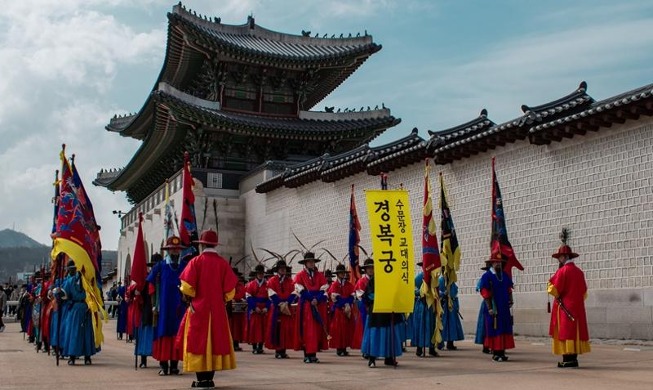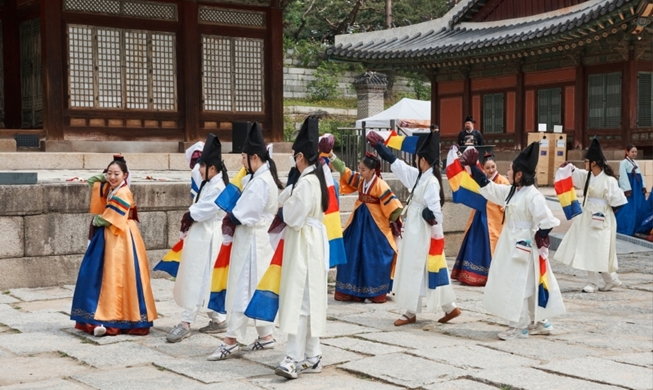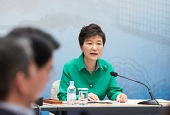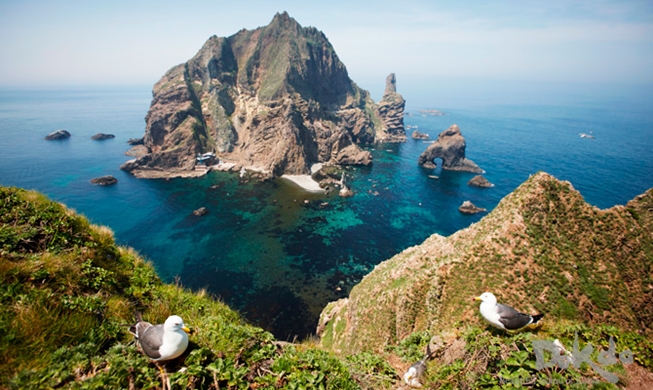-
 Korea.net's 24-hour YouTube channel
Korea.net's 24-hour YouTube channel- NEWS FOCUS
- ABOUT KOREA
- EVENTS
- RESOURCES
- GOVERNMENT
- ABOUT US
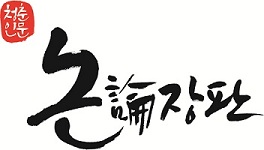
On August 9, the International Education Building at Ewha Womans University hosted the final rounds of the, "Exploring Korean Humanities Together." The university students came from across the globe -- Asia, Europe and Africa -- and the event, in Korean, was a, "Cheong-chun-in-mun-non-jang-pan," which can roughly be translated as a, "Exploring Korean Humanities Together."
In Korean, a pan is a union or gathering of family members, friends and community members, where they enjoy food and drink as well as conversation. It can be compared to a symposium or a debate competition.
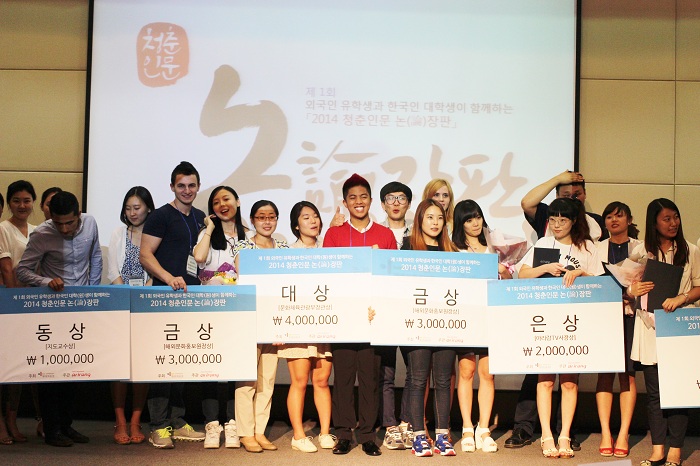
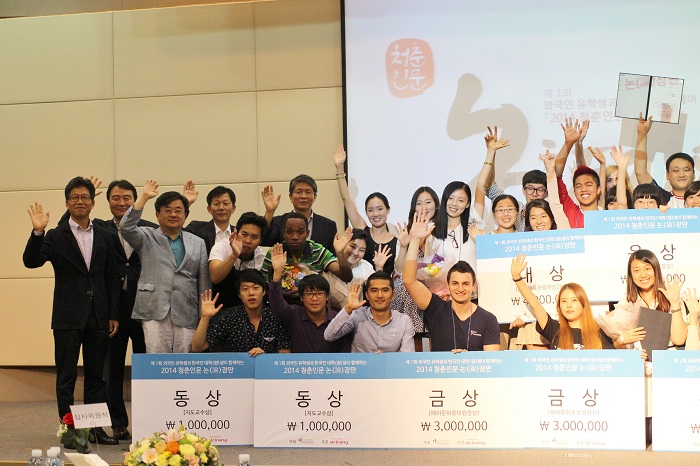
The final presentations of the speech competition are held on August 9 at Ewha Womans University. At the competition, students from 29 countries team up to enjoy their friendship and to participate in a conversation about society and culture. (photo: Wi Tack-whan)
The first rounds of the humanities speech competition began in May this year, when students created teams and submitted their applications. Each group had to combine Korean and non-Korean students and had to select one of three topics to discuss: the Korean Spirit, Korean Religions or Korean Taste. A total of 62 teams of 224 students entered the event. Following the first rounds, only ten teams survived for each topic, making it a total of 30 teams and 117 students. Among them were 63 international students from 29 countries.
The final round of speeches was held on August 9, between 15 teams and 60 students. The intense competition ran from 9 a.m. to 6 p.m.
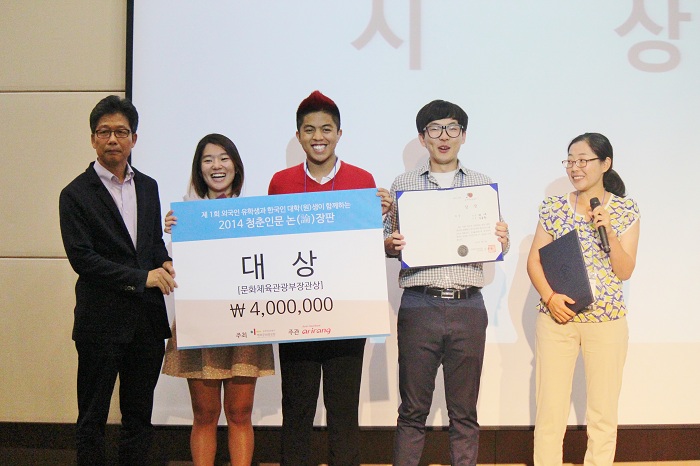
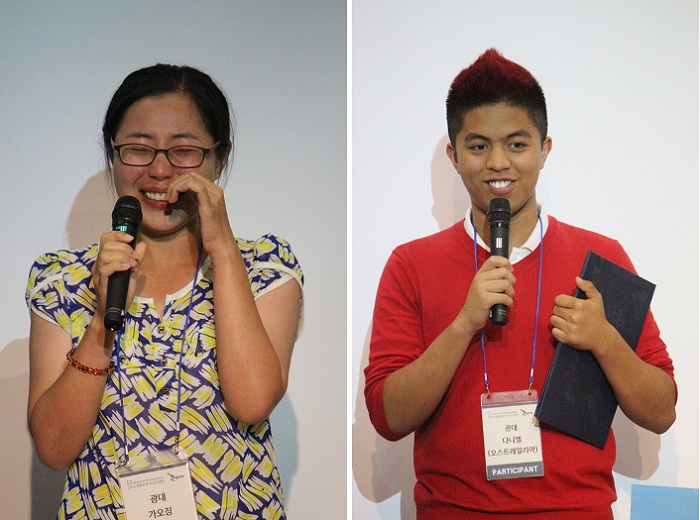
The grand prize goes to the Gwangdae team from Andong University, the, "Clown," team, in English. Two of the team members, including Gao Jing (bottom, left), and Daniel Alexander express their joy at winning. (photo: Wi Tack-whan)
The topics that the participating students brought to the podium were truly diverse. On the topic of Korean Religions, there were discussions about different Buddhist views on marriage and the eating of meat, with comparisons made between Korea and Vietnam. Also, some students spoke about their perspectives toward Korean Catholicism. On the topic of the Korean Spirit, students discussed methods of communication between Koreans, the relationship between parents and children in Korea and Korea's dating trends. One of the groups said that Koreans are sometimes, and uniquely, comparable to a boiling pot: they easily rise to a boiling temperature and then instantly cool down. The group claimed that there is a connection between that characteristic and a deeper feeling of unity between people. Finally, on the topic of Korean Taste, one team received a lot of attention with its interesting topic of traditional talchum mask performances. All the speeches were made in Korean, from start to finish.
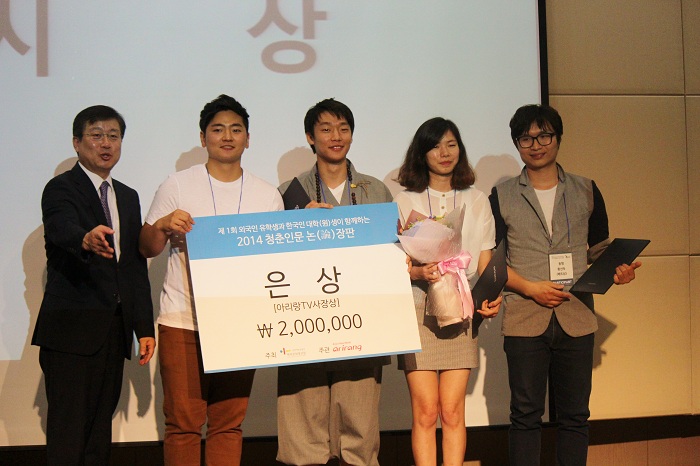
Team Donghaeng, or, "Team Accompanying," receives silver. Students from Kyung Hee University and Sangji University take a photograph with a representative of the Korea International Broadcasting Foundation. (photo: Wi Tack-whan)
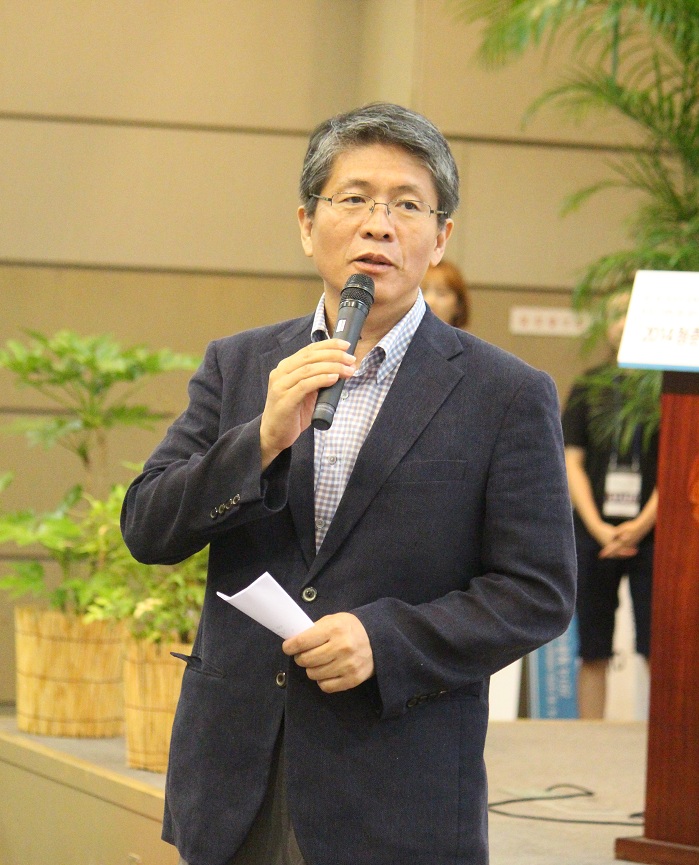
Korean Studies Professor Choi Joonsik from Ewha Womans University, one of the guidance advisors at the competition, explains the results. (photo: Wi Tack-whan)
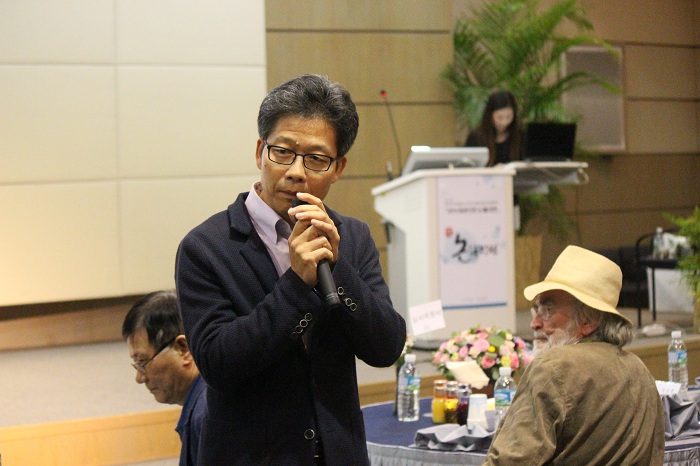
Won Yongki, head of the Korean Culture and Information Service, which publishes Korea.net, stresses the importance of engaging in meaningful conversations about society, religion and culture. (photo: Wi Tack-whan)
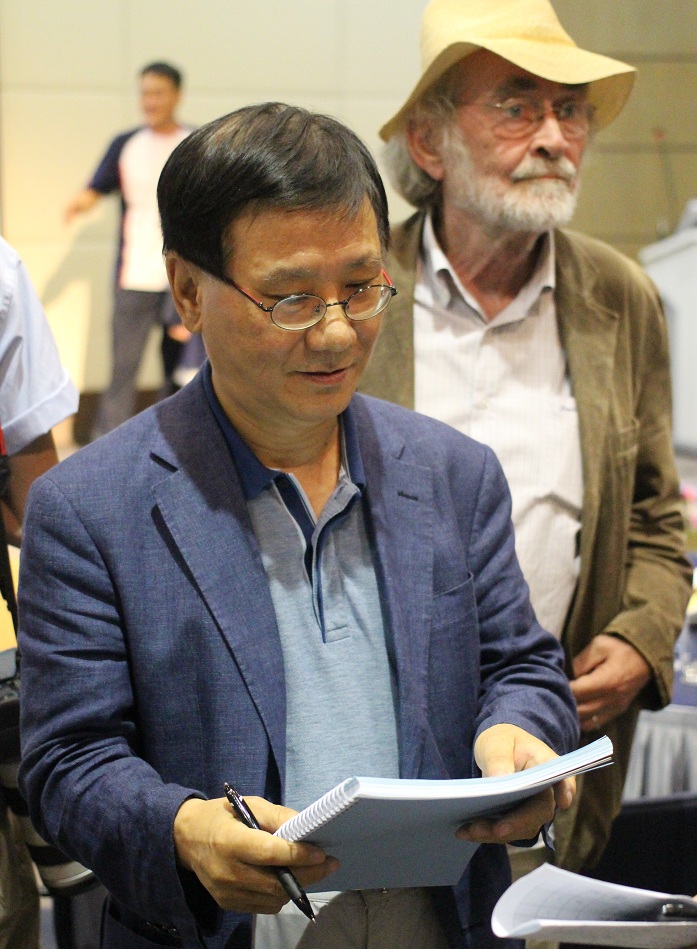
Chair Professor Lee Wonbok of Duksung Womans University, also one of the guidance advisors, evaluates the results. (photo: Wi Tack-whan)
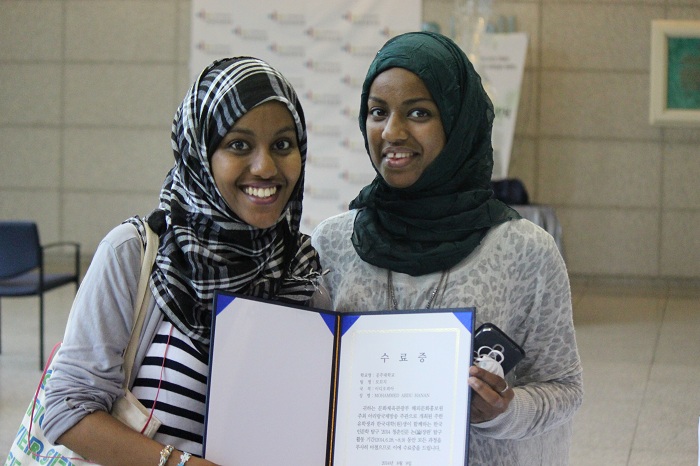
Two sisters from Ethiopia smile as they hold up their completion certificates from the speech competition. (photo: Wi Tack-whan)
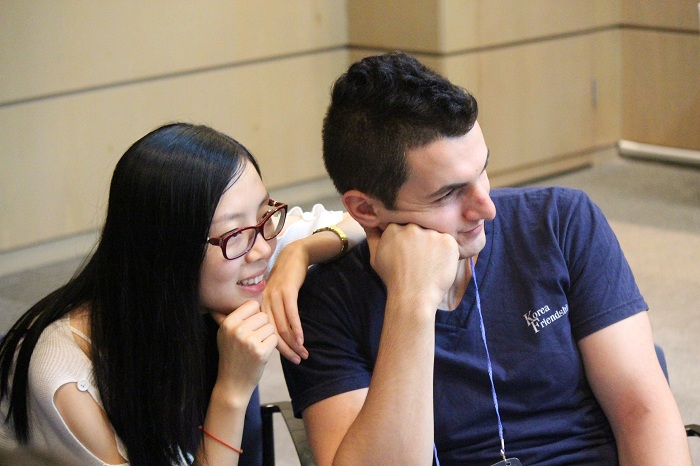
Students from China (left) and Azerbaijan hope for good results. (photo: Wi Tack-whan)
As mentioned above, the grand prize went to the Gwangdae team from Andong University. The team spoke about the beauty of Hahoe, a traditionally-maintained village in Gyeongsangbuk-do (North Gyeongsang Province), near the city of Andong. The village is famous for its traditional mask dance and performances. The team -- Abellera Daniel Alexander from Australia, Gao Jing from China and Gang Jong-won and Sim So-yi from Korea -- carried out an in-depth study of the traditional masks that originate in Hahoe. The masks are part of a folk festival performance with food, drink and sarcasm. The festival was enjoyed only once per year by both the ruling classes, the yangban, and the subjugated classes, the sangmin. Only during the festival were lower-class people allowed to wear masks and to criticize the behavior of upper-class people. The higher class enjoyed the performances together with the lower class, sharing food and drink together. Even after the festival, they did not raise any question about the sangmin's criticisms. Andong University's Gwangdae team explained to the audience in an easy and clear manner the concepts of harmony and co-existence that highlighted the custom.
The cross-cultural speech competition was hosted by the Korean Culture and Information Service (KOCIS), an affiliate of the Ministry of Culture, Sports and Tourism and publisher of Korea.net. It was prepared by the Korea International Broadcasting Foundation.
Won Yongki, head of KOCIS, said, "I worried a lot about this first speech competition focused on the humanities, but I soon found that I didn't need to. Such efforts and opportunities should be expanded so that young people from across the globe can learn about and accept differences through conversation and seek out a future direction together."
By Wi Tack-whan, Lee Seung-ah
Korea.net Staff Writers
whan23@korea.kr




